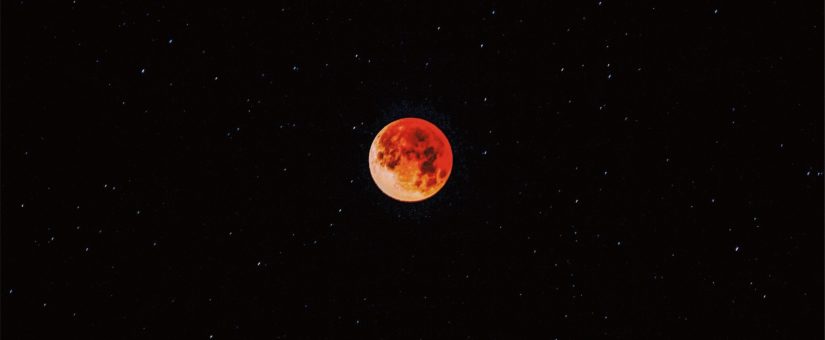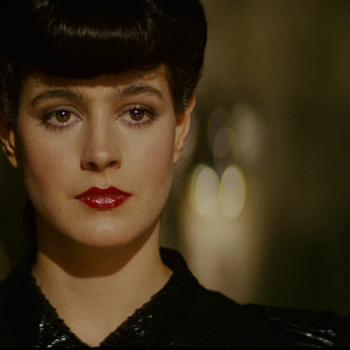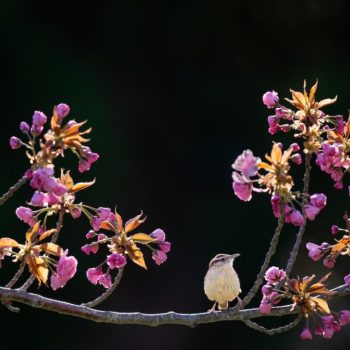
Beautiful and Challenging Work: A Conversation on Speculative Poetry, Part 3
- Posted by Augur Blog
- On May 22, 2019
- 0 Comments
- interview, poetry
By Terese Mason Pierre
This is the final part of Augur’s blog series on speculative poetry. I wanted to talk to the poetry editors of speculative lit magazines about their thoughts on this kind of work. First, we discussed what made a poem speculative. Then, we spoke about the kinds of speculative poetry we liked and found valuable.
Today, Romie (Strange Horizons), Brandon (FIYAH) and I discuss what it’s like to edit speculative poetry, who are our favourite poets, and what we’re hoping to see next.
As an editor, how do you edit speculative poetry? Is there a special approach you use? Do you have an editing philosophy?
Terese:
Some poems do not need editing from me; I will accept them as they are. When I do choose to edit poems, I want to work as closely with the author as I can.
I want to be sensitive to their worries and reassure them that their work is exciting. I’m a writer, too, and I bring that lens to editing. Before I touch the piece, I give the writer my interpretation of their poem, and ask them as many questions as I can about the piece. I want the writer to be able to explain their work, defend it, and give insight into their headspace when writing the piece, as well as their intention.
I do substantive and line edits to pieces, wide-ranging. I’ve edited some pieces that required deletion of stanzas. I’ve rearranged a whole poem’s structure. Sometimes, all I add is a comma.
It takes bravery to trust an editor with your work, and editing is something I take as a serious responsibility. I’ve heard many times that once a piece of writing goes out into the world, it no longer belongs to the author. I want the piece that goes out into the world to make the author not only comfortable, but also proud.
Brandon:
I like to be as minimal as possible. When I accept a poem, it’s in part because I trust that the poet knows what they want to do, and all I’m here to do is make sure they do it to the best of their own ability.
So many times I will see a poem that only needs to be aware of its grammar, or to ask whether a word is as strong as it can be. If it needs much more than that, I want to be able to talk to the poet first and figure out how they feel about the piece, so I can get the best sense of exactly what they want and how I can help them get that. Luckily, I don’t think it’s ever come to that with work that’s come to FIYAH, or it has been as simple as one or two questions about a few lines, at most.
Romie:
It’s extremely rare for me to change anything about a poem. I don’t change commas, and if I notice a misspelling I check if it’s intentional. I am sent so many excellent poems, so many more than I could ever publish, that if I’m accepting something, it’s safe to assume I love it.
If I love it, why would I change it? I trust that the poet knows what the poet is doing.
My job is more curatorial—I’m picking what goes on the wall of the gallery, not telling somebody to switch paint colours. Even with stuff I reject (and perhaps especially with stuff I reject) I’m much more likely to tell someone the part I liked rather than the part I didn’t like. Because who knows— that could be the part that’s riveting for someone else.
In the past year, I can think of exactly two times I made an editorial suggestion. One was for Jessy Randall’s poem “Cassini’s Mini-Packets Home.” In the original ending, Cassini felt more betrayed and surprised by the end of the mission. I asked Jessy whether she’d consider rewriting it, which she did wonderfully. I can’t really take credit for the rewrite. Although, I can take credit for blithering a bit about my own emotional reactions to the Cassini mission and various interviews I’d read by the NASA team about their experiences of the crash.
My other editorial request was for August Huerta’s “Concerning President Carter and the UFO Sighting.” In that case, August completely rewrote the poem after acceptance, and since both versions were spectacular I was happy to accept the changes. But I did mention that I’d liked one stanza in the first version that had disappeared entirely from the second. August was kind enough to reintegrate it in a revised form.
To be clear, these are two of my favourite poets in the world.
Who are your favourite speculative poets, emerging and established?
Brandon:
Oh, gosh! There are so many, I should just go into the list:
- Fran Wilde
- Amal El-Mohtar
- Terrance Brown
- D.A. Xiaolin Spires
- S. Qiouyi Lu
- Ali Trotta
- CSE Cooney
- Mary Soon Lee
- Melody Watson
- Bogi Takács
- Cassandra Khaw
- Andrea Tang
- Tlotlo Tsamaase
- Hester Rook
I’m sure this isn’t even a sizeable fraction of everyone I always love reading.
Terese:
I’m a fan of Amal El-Mohtar, Dominik Parisien, Margaryta Golovchenko, and David James Brock. I really love lyrical poetry, with strong imagery.
Romie:
Anybody whose poem I have published, I am a fan of. I put my money (or, well, donors’ money) where my mouth is.
I’ll say that we’re a market that is extremely friendly to people who haven’t published much before, or at all, who are new to the genre, or who are very young or very old, who live in places that aren’t covered in the news, who used to submit a lot but then didn’t write anything for 10 years because of depression, or for whom English is a second language. That doesn’t count against you even slightly.
We also respect the value of people with long publishing histories, whose poems talk to each other across time and across magazines. In both cases, it’s all about the poem. Even bigtime poets write duds from time to time, and new voices can very quickly become big names if they’re saying something readers want to hear more of. This is a politic answer but not an untruthful one.
What would you like to see more of in speculative poetry in the future?
Romie:
Anything! All of it! This is a big tent over here.
Terese:
I would love to see speculative poetry to become as prominent as speculative fiction. It’s a beautiful genre and can take us to so many places.
I want a greater culture around speculative poetry—books, reviews, criticism—and if one exists already, I want to find it.
Brandon:
More of everything!
If it had to be anything specific, I’d love to see more poets play with form more often, and finding interesting ways to present their words on the page. But if there’s anything I care about even more, is that I would love for speculative poetry’s readership to keep growing.
I want to see more places review poetry, and see more speculative poetry outlets open up and take more work. I want more of the internet to value poetry as highly as they do their favourite novels and short stories, so more people can see the interesting things that are happening in speculative poetry, and hopefully that will entice more people to write and submit some of their own.
A wealth of beautiful and challenging work is coming out so often, and I can only hope that as many people as possible are seeing it.
—
This part wraps up the speculative poetry conversation series. I’m grateful to Brandon and Romie for sharing their thoughts, opinions and insights on speculative poetry. Knowing what they’re enthusiastic about and interested in, I’m glad to know that they’re at the front curating and editing the pieces we love to read. It makes me excited for what’s next.
What do you think? Are there any great speculative poets we missed? Let us know in the comments.
Bios:
Brandon O’Brien is a poet, writer, critic and facilitator from Trinidad and Tobago. His work has been published in Uncanny Magazine, Strange Horizons, Reckoning, People of Colo(u)r Destroy Fantasy!, and New Worlds, Old Ways: Speculative Tales from the Caribbean, among other outlets. His work has been shortlisted for the 2014 Alice Yard Prize for Art Writing, and the 2014 and 2015 Small Axe Literary Competitions. He is also a performing artist with The 2 Cents Movement, and the poetry editor of FIYAH Literary Magazine. Visit his website at: www.brandonobrien.space
Romie Stott has been on the editorial mastheads of Reflection’s Edge, Drollerie Press, and the Hugo-nominated Strange Horizons. Her short story, “A Robot Walks Into a Bar…” won the 2012 Intel/Arc Tomorrow Project “Future Pleasures” Prize, and her historical fantasy feature screenplay Ratcatcher was a top 10 finalist in the 2012 American Zoetrope Screenplay Competition. As a narrative filmmaker (working mainly as Romie Faienza), Romie has been a guest artist at the Institute of Contemporary Art (Boston), the Dallas Museum of Art, and the National Gallery (London). She is a regular contributor to The Billfold and Atlas Obscura. Visit her website at: www.romiesays.tumblr.com
Terese Mason Pierre is a writer, editor and organizer. Her poetry and fiction have appeared in multiple online and print journals, including Bad Nudes, FIYAH, Cosmonauts Avenue, and Train. She is the poetry editor of Augur Magazine and co-organizes Shab-e She’r, and Slant, both reading series in the city of Toronto, where she lives and works. Visit her website at: www.teresemasonpierre.com




0 Comments